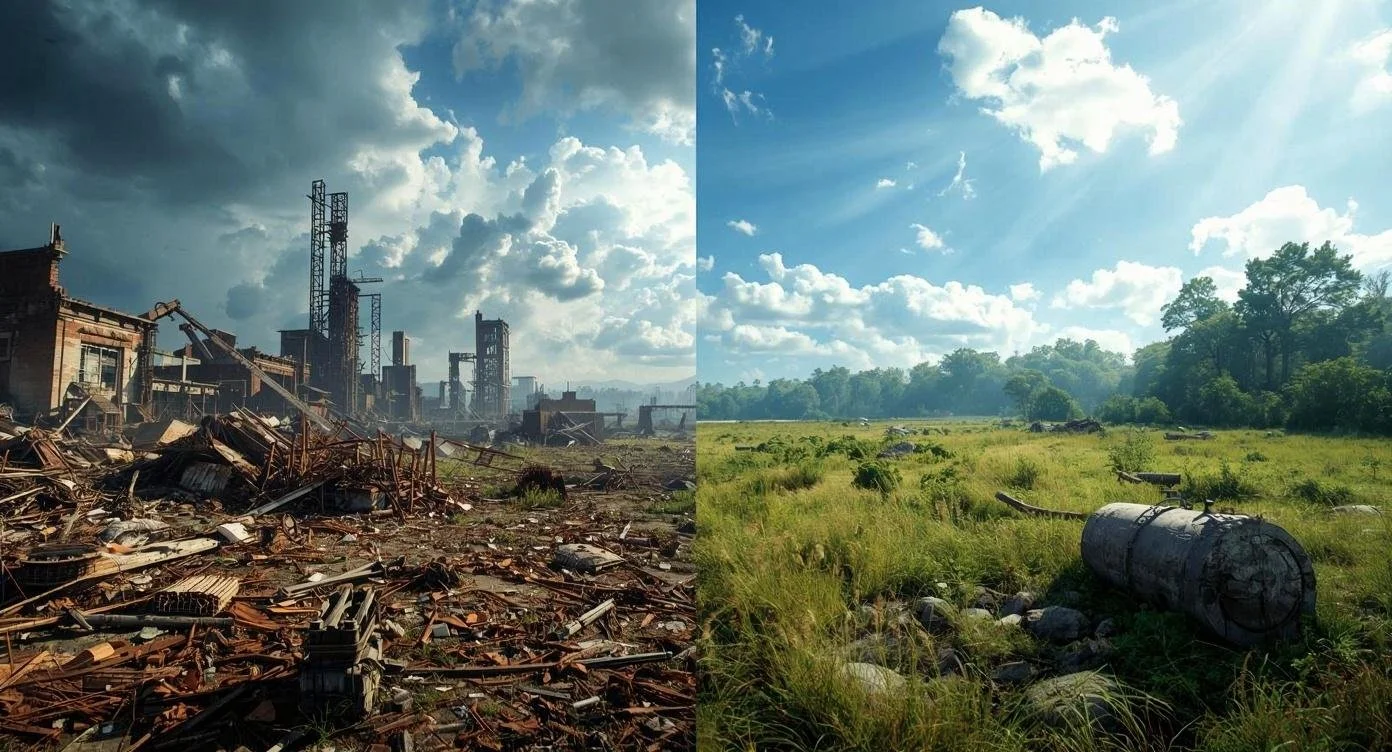The Men's Apocalypse
The word apocalypse scares most of us. Fire, destruction, zombies, wastelands full of dead trees. We think chaos and hopelessness. Nothing good. Even the dictionary piles it on: “the complete and final destruction of the world.” Yeesh. Sounds like a horror story, not something you’d want to live through.
But here’s the thing. Apocalypse didn’t start out meaning destruction. The word comes from the Greek apokálypsis. It means revelation, uncovering the truth. It’s not about the world ending. It’s about seeing things clearly for the first time. Something hidden gets revealed.
That’s why apocalypse isn’t always bad. It’s uncomfortable. Revelation shows something you thought was true isn’t. Something you built your life on gets exposed. Something has to end for something real to begin.
We all have a “first apocalypse.” Remember finding out Santa Claus isn’t real? Or the Easter Bunny isn’t sneaking around hiding eggs? That world ended. But it didn’t destroy you. The magic faded, but understanding replaced it. You saw how the world actually worked. That was your first apokálypsis. The end of one world and the start of a clearer one.
For many men, the apocalypse comes later, and it’s heavier than losing Santa. Most of us grew up hearing the same rules: be strong. Stay in control. Don’t cry. Don’t talk about what’s bothering you. Fix it. Move on. We learned anger is fine, but sadness, fear, and vulnerability are not. Emotions were problems to solve or hide. Not things to feel.
And that worked for a while. You built a career. You provided. You stayed busy. You played the role. But one day, something cracks. The “strong and silent” world starts to fall apart.
Maybe it shows as burnout, anxiety, depression, or loneliness. Maybe it’s the day you can’t sleep because your brain won’t stop. Maybe it’s a broken relationship, losing a job, or just waking up and not knowing who you are anymore. That’s the apocalypse. The world built on toughness and silence falls apart.
But here’s the truth: maybe it’s not you falling apart. Maybe it’s a mask. That’s not failure. That’s revelation. That’s your apokálypsis.
Revelation is like the lights coming on after being in the dark. It stings. It shows the mess. But it also shows what’s real. The world you built to survive has to end before you can actually live.
You don’t need to hit rock bottom. You just need to let go of the version of yourself that can’t come with you into the next chapter. Something old has to end for something new to begin.
Let go of the idea that asking for help is weakness. Admit you’re lonely. Forgive yourself for not being the man you thought you “should” be. That’s courage. It’s not the end of manhood. It’s the start of a truer one.
Real strength isn’t keeping it all together. It’s having the guts to admit when you’re falling apart. Saying, “Man, I’m not okay.” Calling a mentor or therapist before things explode. Taking a walk instead of a drink. Feeling instead of reacting. That’s not weakness. That’s revelation. That’s your apokálypsis in action. The apocalypse doesn’t destroy you. It frees you.
After every apocalypse comes rebuilding. Not back to the old way, but better. Relationships built on honesty, not performance. Identity built on who you are, not who you’re supposed to be. Strength built by facing emotions, not hiding from them. And maybe, for the first time, peace.
If your world feels like it’s ending, maybe it’s not the end of you. Maybe it’s the end of the story you were told to live by. Apokálypsis is uncovering truth. Saying, “I can’t keep doing it this way,” can feel like the end of the world but it’s the start of something honest. The apocalypse doesn’t destroy you. It strips away the lie that you have to go it alone. Maybe it’s not the end of the world at all. Maybe it’s just the end of pretending.

